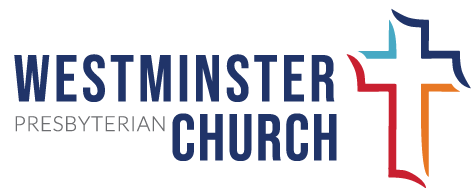Christians have long proclaimed the spiritual benefit of prayer; and likewise, Christians and non-Christians who meditate regularly report feeling an inner peace and strength that carries them through the day. Prayer and meditation are integral components of most all the world’s religions. Thomas Ryan in, Prayer of Heart and Body, suggests meditation is a way for the soul to venture inward to find and experience a union with God.
In the 1970s, a group of Cistercian monks searched for a means to revive, from early Christianity, the inner silence of Contemplative Prayer. The result was Centering Prayer which has been advanced by Fr Thomas Keating, Open Mind, Open Heart, 2006. However, the purpose of Centering Prayer is not to experience peace, but to let go of the obstacles to divine union and consent to God’s presence and healing action in our lives.
Prayer and meditation are inextricably related; and for purposes of today’s discussion I have taken the liberty of blending the two to form one concept -- Christian spiritual practice (CSP). A recent article in the Huffington Post by Richard Schiffman reported people who engage in CSP regularly are healthier than those who don’t. “It doesn’t matter if you pray for yourself or for others, pray to heal an illness or for peace in the world, or simply sit in silence and quiet the mind, the effects appear to be the same--alleviate stress levels, and maintain a positive outlook.”
Herbert Benson, a cardiovascular specialist at Harvard Medical School evolved the concept of “relaxation response” which decreases metabolism, slows heart rate, reduces blood pressure, and calms breathing. His studies report CSP produces this relaxation response. He correlates this state with slower brain waves, tranquil alertness, and peace of mind. More recently, Benson’s research suggests that long term CSP helps to deactivate the genes that trigger inflammation and cause cell death. A survey of 4,000 senior citizens in North Carolina found that those who participated in CSP coped better with illness and lived longer than those who did not.
Possibly the most famous scientific prayer study was conducted by cardiologist Randolph Byrd in 1988. He assigned 393 patients admitted to the coronary care unit to one of two groups: those prayed for by home prayer groups and a group that was not remembered in prayer. The prayed for group were: five times less likely to require antibiotics; three times less likely to develop pulmonary edema; 12 times less likely to require assisted ventilation; and overall less likely to die.
Daniel Amen, Healing the Hardware of the Soul, reports research strongly suggesting that going to church and being part of a body of believers has health benefits for both brain and body: mortality rates for men are 25% lower and women 35% lower for those who attend church services; hip fracture patients who attend church walk longer distances and have less depression at discharge; patients who depend on their faith for strength are three times more likely to survive open-heart surgery; people who attend Church generally have stronger immune systems; 42 percent of hospitalized patients cited their religious faith as being the most important factor in helping them cope with illness and recovery. It becomes clear, that the brain, body, and soul need each other to work in a balanced and effective manner.
Christian Spiritual Practice has been shown to help people manage symptoms associated with: aggressive behavior, asthma, anxiety disorders, cancer, depression, fear and phobias, heart disease, hypertension, immune dysfunction, insomnia, memory loss, pain, post-operative recovery, and diminished will power. In the 1998 classic reference on religion and healing, The Faith Factor, Dale Matthews, M.D. presents scientific evidence and anecdotal examples that support his premise that CSP is vital for human health and well-being.
There is ever increasing research to indicate that while participating in CSP is not in any way a replacement for traditional health care, it certainly is a powerful complement to any other treatment. I hope this Lenten health series has been useful and interesting to you as you reflect on your personal health. My intent has been to leave you with validation that your health is modifiable; and this change is within your control through your relationship with God.
blog comments powered by Disqus“Ask, and it will be given to you; seek, and you will find; knock, and it will be opened to you. For everyone who asks receives, and he who seeks finds, and to him who knocks it will be opened.” Matthew 7:7-8
